AITA for leaving the hospital after my husband called for his mom instead of me?
In the sterile, tense corridors of the hospital, a wife’s heart was torn between hope and frustration.
As her husband lay vulnerable under the haze of anesthesia, the silent presence of his mother beside her only deepened the chasm of unspoken conflicts, each minute stretching painfully as she wrestled with feelings of exclusion and neglect.
When the moment came to see him awake, the natural instinct of her husband to call for his mother ignited a storm of emotions within her—irritation, hurt, and a desperate longing for recognition in a space where love and loyalty seemed divided.
The choice to leave early, driven by exhaustion and emotional overwhelm, would only fuel the fire of misunderstanding and confrontation yet to come.
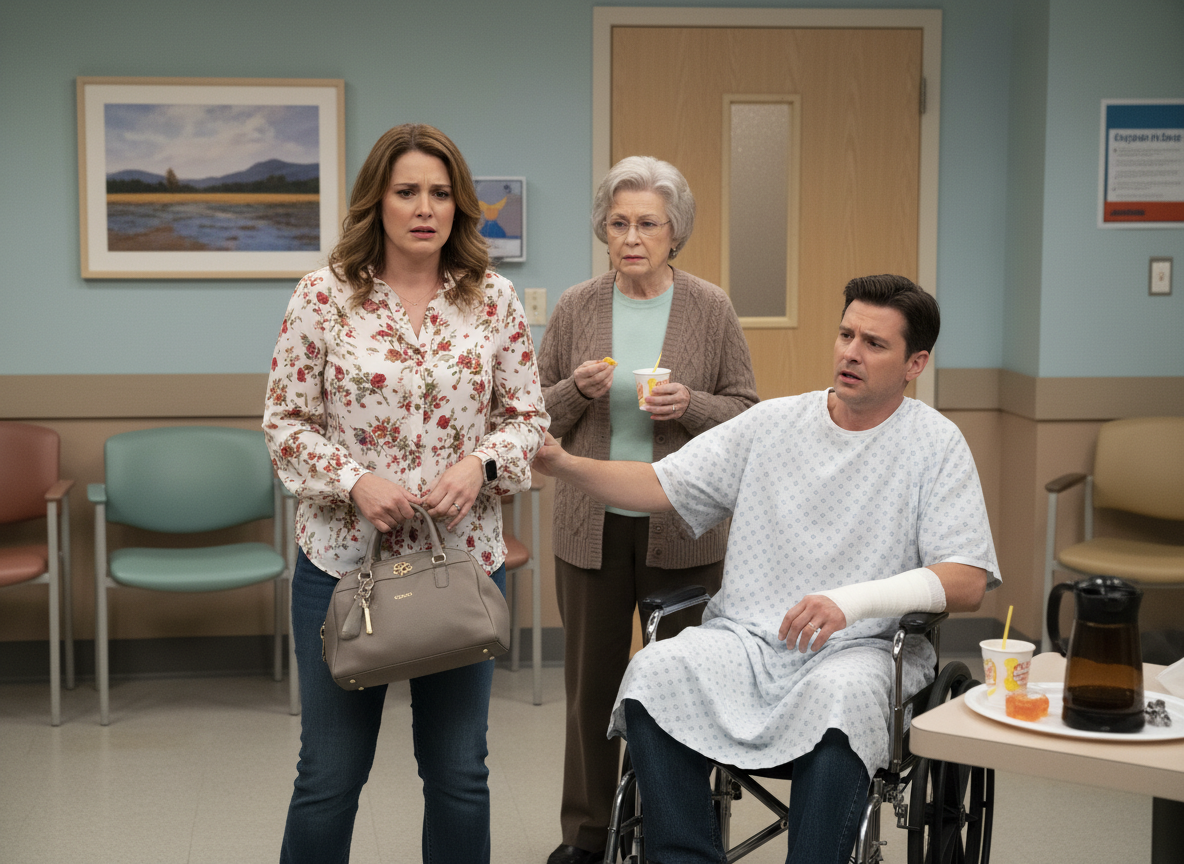
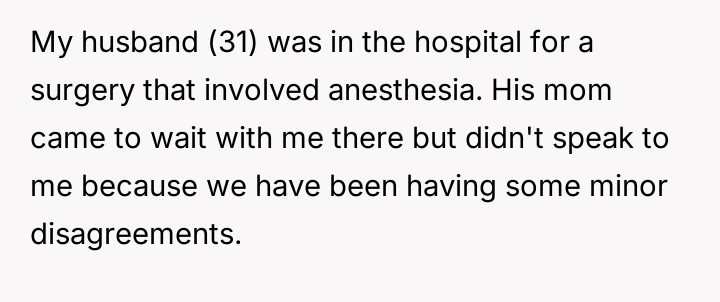

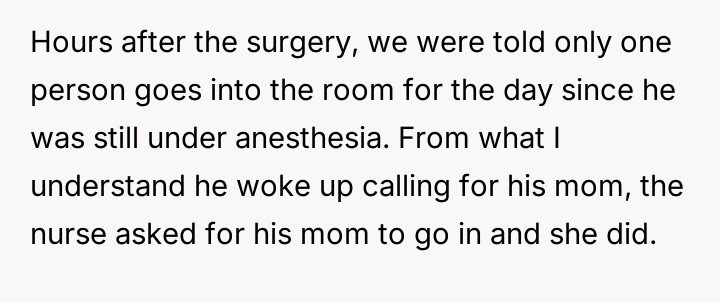
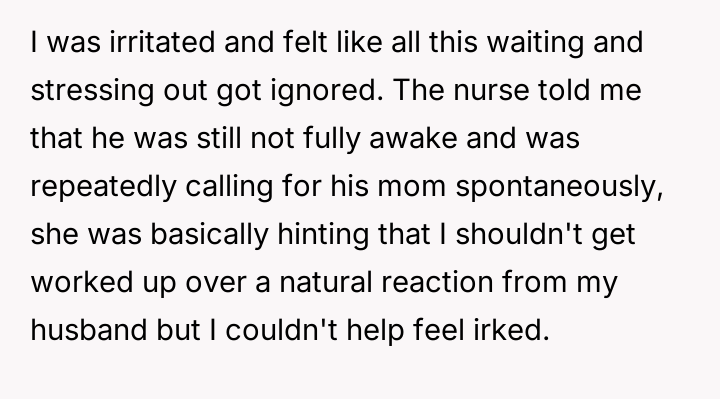
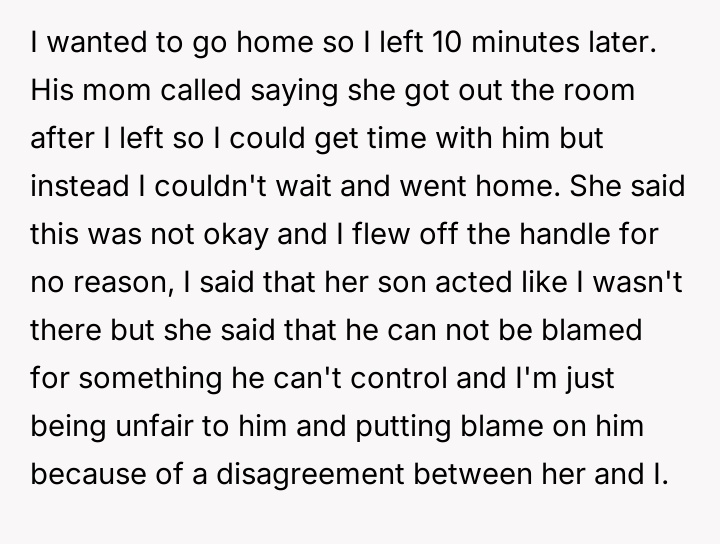
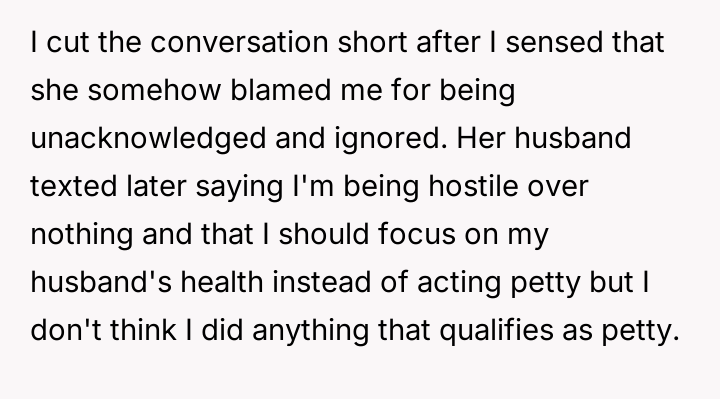
Subscribe to Our Newsletter
No spam, unsubscribe anytime. Privacy Policy
The Internet Sounded Off — and It Got Loud:
Support, sarcasm, and strong words — the replies covered it all. This one definitely got people talking.
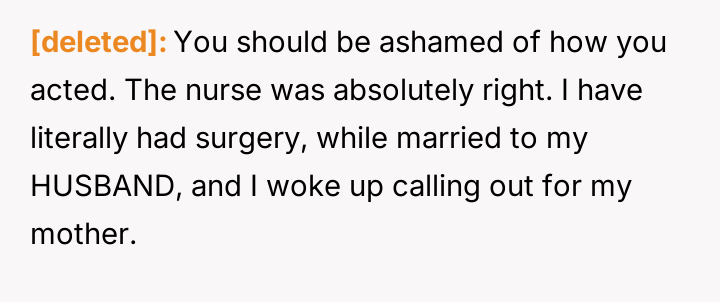
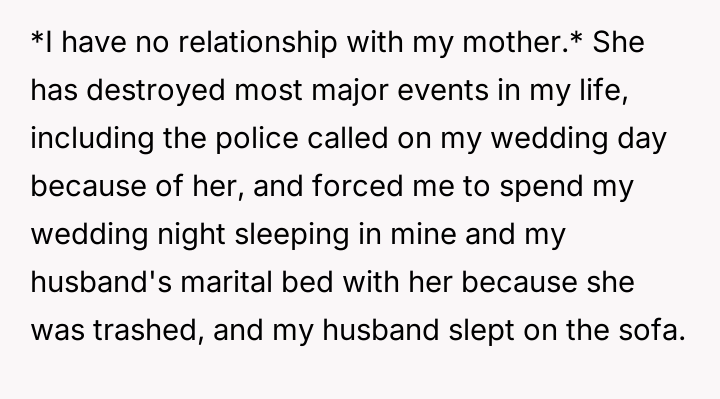
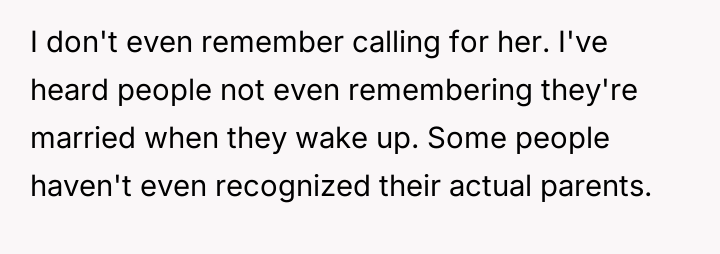
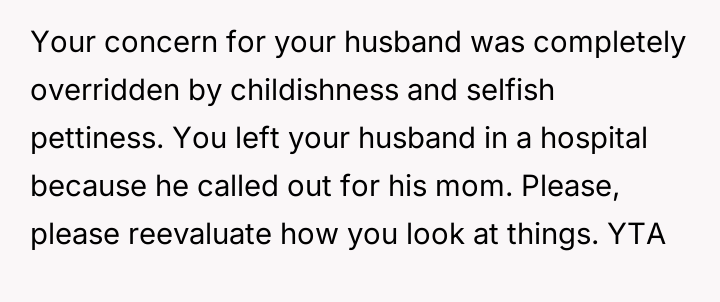
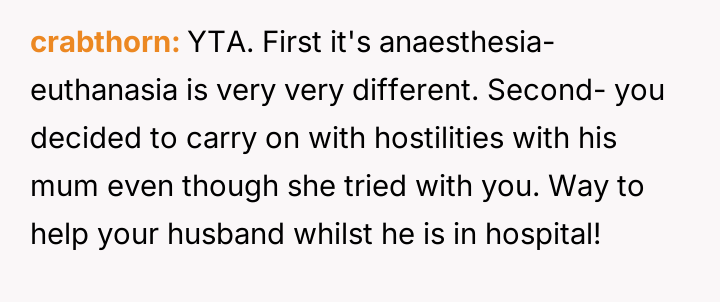
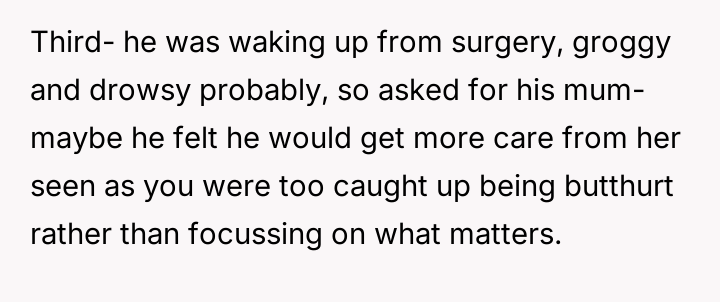

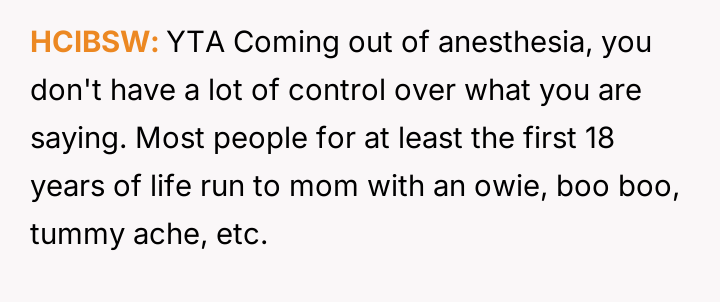
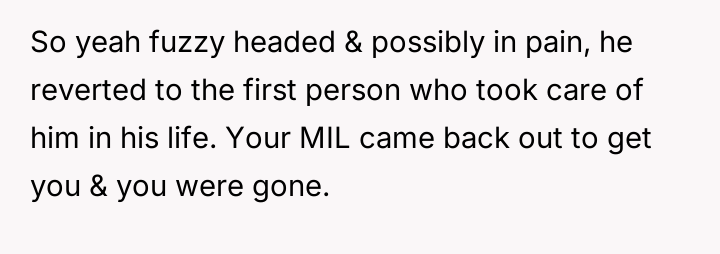

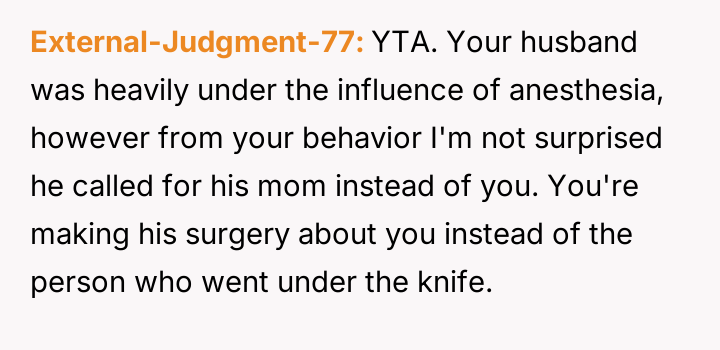
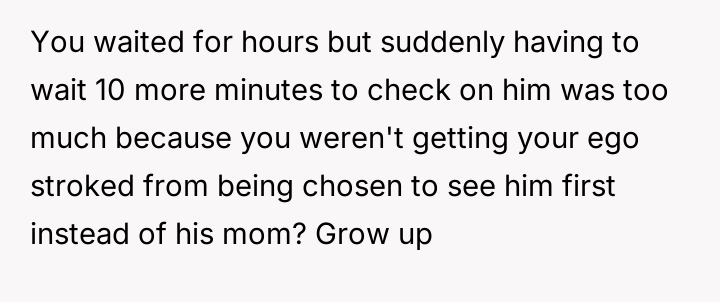
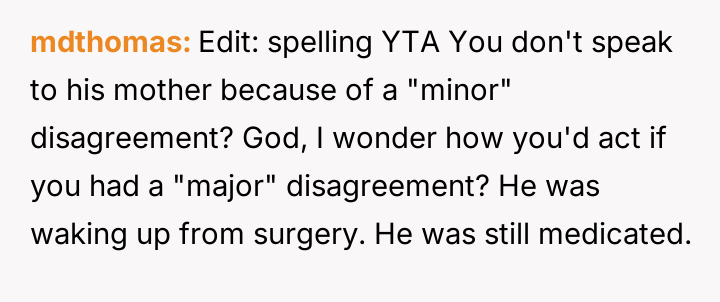
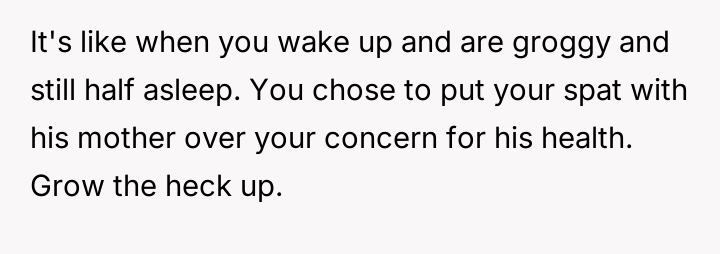

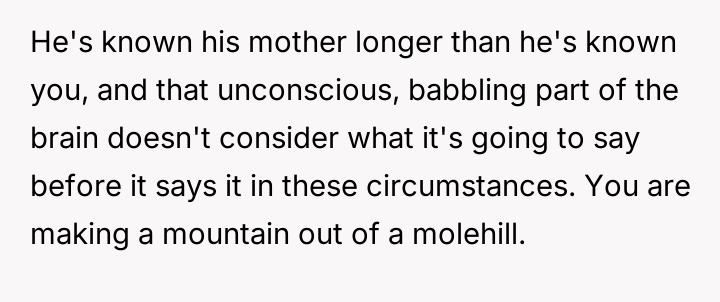

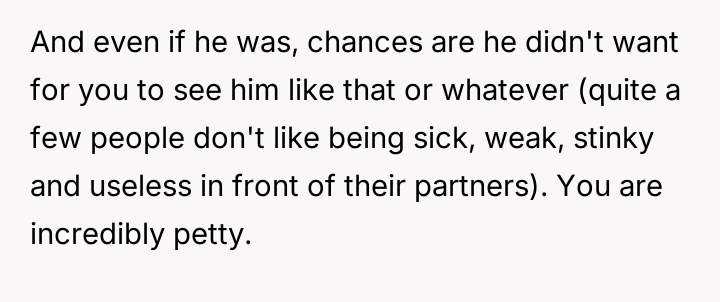

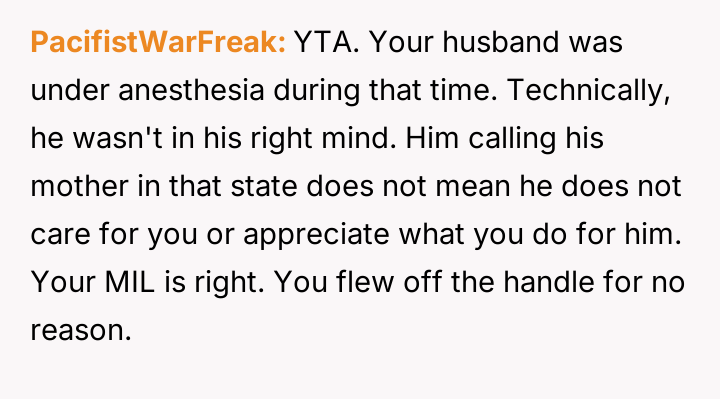
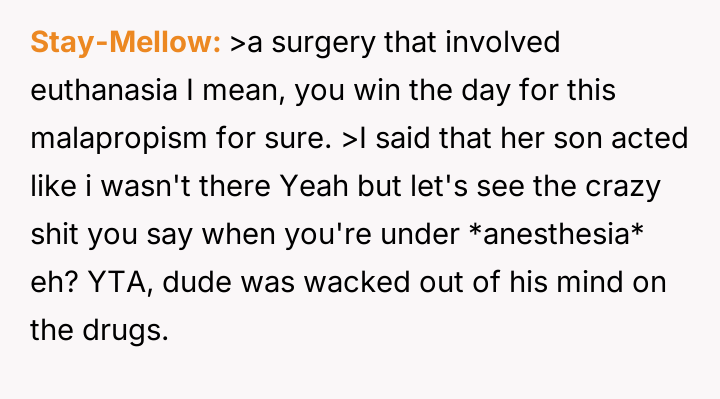
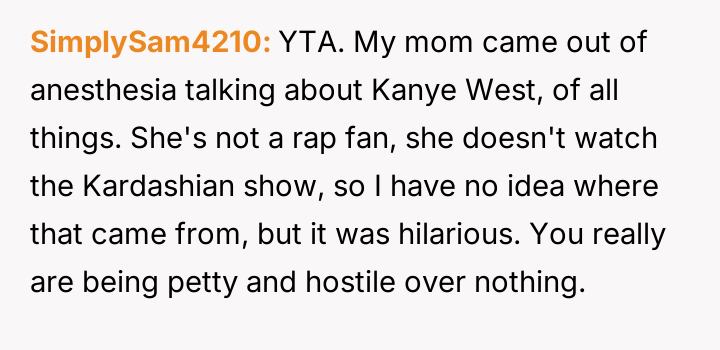
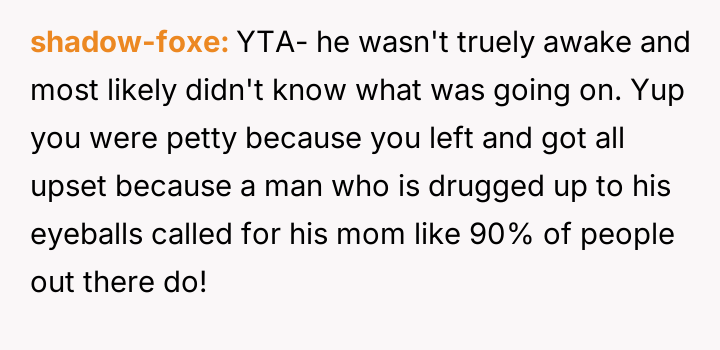
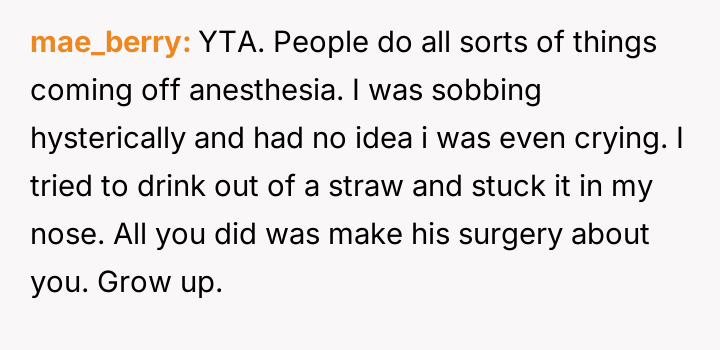
The original poster experienced significant emotional distress and a feeling of being sidelined during a critical time when their husband was recovering from surgery.
The central conflict arises from the clash between the OP's expectation of spousal support and priority in the hospital setting, and the reality of the husband's immediate, instinctual need for his mother following anesthesia, which was further complicated by pre-existing family tension.
Is the OP justified in feeling hurt and ignored when their husband instinctively called for his mother instead of them immediately after surgery, or should this natural post-anesthesia reaction be completely excused given the context of prior disagreements with the mother-in-law?

